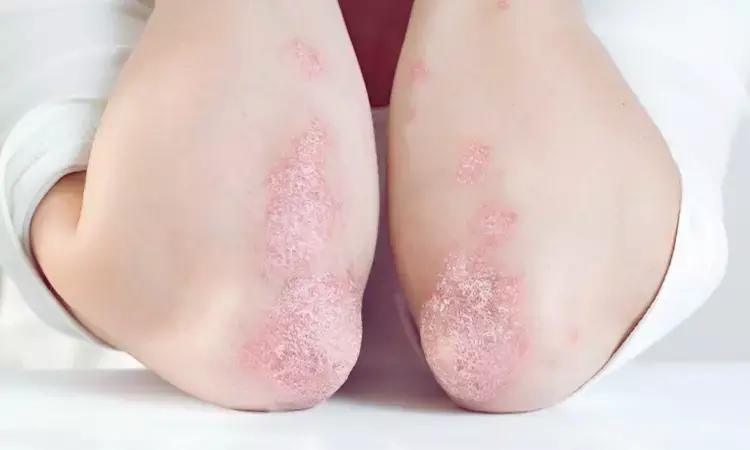- Home
- Medical news & Guidelines
- Anesthesiology
- Cardiology and CTVS
- Critical Care
- Dentistry
- Dermatology
- Diabetes and Endocrinology
- ENT
- Gastroenterology
- Medicine
- Nephrology
- Neurology
- Obstretics-Gynaecology
- Oncology
- Ophthalmology
- Orthopaedics
- Pediatrics-Neonatology
- Psychiatry
- Pulmonology
- Radiology
- Surgery
- Urology
- Laboratory Medicine
- Diet
- Nursing
- Paramedical
- Physiotherapy
- Health news
- Fact Check
- Bone Health Fact Check
- Brain Health Fact Check
- Cancer Related Fact Check
- Child Care Fact Check
- Dental and oral health fact check
- Diabetes and metabolic health fact check
- Diet and Nutrition Fact Check
- Eye and ENT Care Fact Check
- Fitness fact check
- Gut health fact check
- Heart health fact check
- Kidney health fact check
- Medical education fact check
- Men's health fact check
- Respiratory fact check
- Skin and hair care fact check
- Vaccine and Immunization fact check
- Women's health fact check
- AYUSH
- State News
- Andaman and Nicobar Islands
- Andhra Pradesh
- Arunachal Pradesh
- Assam
- Bihar
- Chandigarh
- Chattisgarh
- Dadra and Nagar Haveli
- Daman and Diu
- Delhi
- Goa
- Gujarat
- Haryana
- Himachal Pradesh
- Jammu & Kashmir
- Jharkhand
- Karnataka
- Kerala
- Ladakh
- Lakshadweep
- Madhya Pradesh
- Maharashtra
- Manipur
- Meghalaya
- Mizoram
- Nagaland
- Odisha
- Puducherry
- Punjab
- Rajasthan
- Sikkim
- Tamil Nadu
- Telangana
- Tripura
- Uttar Pradesh
- Uttrakhand
- West Bengal
- Medical Education
- Industry
Reduced Solar Radiation Associated with Increased Use of Systemic or Phototherapy in Psoriasis: Study

A new study published in the journal of Photodermatology, Photoimmunology and Photomedicine showed that people with psoriasis are more likely to receive systemic treatment or phototherapy when there is less ambient sun exposure.
Seasonal variations in the severity of psoriasis, with it getting worse in the winter and getting better in the summer, point to the potential benefits of ambient sun radiation. Furthermore, "climate therapy," which involves purposeful exposure to sunshine, lessens the severity of psoriasis. Remarkably, Okun and Okun's research of psoriasis clinical trial participants revealed no connection between the degree of psoriasis and the amount of UV light present at the study locations.
Additionally, studies discovered no significant link when they analyzed the prevalence of psoriasis in existing research by the mean country latitude. Tus, Brad Woodie and colleagues evaluated the relationship between the severity of psoriasis therapy and yearly local sun radiation using a representative sample of the US.
For their study, the research team analyzed de-identified participant data from the 'All of Us' Research Program, version 7 of the National Institutes of Health. Information that has previously been gathered between 2017 and 2022 was incorporated in this program. The group aimed to reduce the number of study participants who could need systemic immunosuppressive treatments for unrelated illnesses.
For this, they excluded those who had been diagnosed with Crohn's disease, atopic dermatitis, ulcerative colitis, psoriatic arthritis, rheumatoid arthritis, systemic lupus erythematosus, or uveitis. Overall, they found a total of 7,748 patients who had been diagnosed with psoriasis.
Nearly, 1,028 of the 5,179 psoriasis research participants got phototherapy or systemic treatment. A higher likelihood of obtaining systemic treatment or phototherapy was linked to a lower GHI in the participants' ZIP code. Higher probabilities of systemic treatment or phototherapy were also linked to feminine sex and obesity. Lower probabilities of systemic treatment or phototherapy were linked to age beyond 75. This study found no correlation between treatment intensity and race, ethnicity, or deprivation index.
Overall, as potential markers of more severe illness, this study demonstrates that lower ambient sun radiation levels are linked to an increased likelihood of obtaining systemic therapy or phototherapy for psoriasis. The relationships between therapy and age, sex, and obesity were consistent with previous studies.
Source:
Woodie, B. R., & Fleischer, A. B., Jr. (2025). Ambient solar radiation predicts psoriasis treatment intensity. Photodermatology, Photoimmunology & Photomedicine, 41(3), e70014. https://doi.org/10.1111/phpp.70014
Neuroscience Masters graduate
Jacinthlyn Sylvia, a Neuroscience Master's graduate from Chennai has worked extensively in deciphering the neurobiology of cognition and motor control in aging. She also has spread-out exposure to Neurosurgery from her Bachelor’s. She is currently involved in active Neuro-Oncology research. She is an upcoming neuroscientist with a fiery passion for writing. Her news cover at Medical Dialogues feature recent discoveries and updates from the healthcare and biomedical research fields. She can be reached at editorial@medicaldialogues.in
Dr Kamal Kant Kohli-MBBS, DTCD- a chest specialist with more than 30 years of practice and a flair for writing clinical articles, Dr Kamal Kant Kohli joined Medical Dialogues as a Chief Editor of Medical News. Besides writing articles, as an editor, he proofreads and verifies all the medical content published on Medical Dialogues including those coming from journals, studies,medical conferences,guidelines etc. Email: drkohli@medicaldialogues.in. Contact no. 011-43720751


